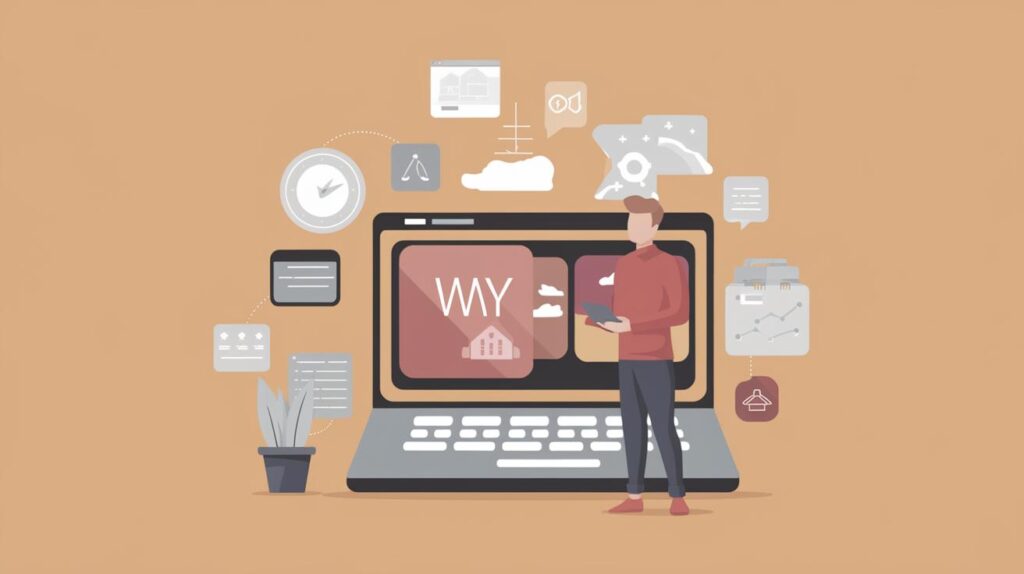The Distinctions Between Websites and Web Portals
In today’s digital age, understanding the difference between a website and a web portal is crucial for businesses and developers alike. While both serve important functions online, they cater to different needs and uses. A website is generally open and accessible to all, providing information or services to a wide audience. In contrast, a web portal offers a more personalized experience, often requiring user authentication to access specific data or services. This blog post will delve into the fundamental differences, benefits, and use cases for both platforms, providing insights to help you decide which is better suited for your objectives.
What is a Web Portal?
A web portal is an online gateway that provides users with personalized access to various applications, services, content, and tools through a single platform. Web portals are designed to streamline user experience by acting as centralized hubs where users can access a wide array of resources tailored to their needs and preferences.
Typically, web portals require user authentication, such as logging in with a username and password, to access fully personalized services. This makes them particularly useful for businesses or organizations that need to provide specific information or data to different users, based on their roles or preferences. Examples of web portals include corporate portals, healthcare portals, and educational portals.
What is a Website?
A website is a collection of related web pages accessible on the internet, typically consisting of a homepage and various interconnected pages that provide information, products, or services. Websites are often designed for public access, allowing anyone with an internet connection to view their content without needing to register or login.
A website serves multiple purposes, including providing information, promoting businesses, showcasing portfolios, and facilitating online transactions. Unlike portals, websites are less likely to offer personalized experiences but aim to deliver consistent information to a broad audience. Websites can be as simple as a single page or as complex as a multi-faceted online store.
7 Key Differences Between Web Portal and Website
While web portals and websites can appear similar at first glance, several key differences set them apart, primarily in terms of function, accessibility, and user experience. Here are seven crucial distinctions:
Firstly, web portals usually require user authentication, whereas websites are typically open to everyone. Secondly, web portals provide personalized content based on user profiles, whereas websites offer the same content to all visitors. Thirdly, web portals often serve a specific group or purpose, while websites cater to a wider audience with diverse needs.
Furthermore, web portals integrate multiple services into a single interface, whereas websites mainly focus on content delivery. Additionally, user interaction is a core element of portals, unlike websites where interaction is secondary. Lastly, portals often focus on roles and tasks relevant to registered users, whereas websites emphasize presenting information to attract a general audience.
How to Choose the Right Platform Between a Web Portal and a Website
Develop a Website if
You have a business or service that aims to reach a large audience. Websites are ideal for brand awareness, marketing, and providing general information about products or services to as many people as possible. If your primary goal is to educate or engage visitors without needing personalized interaction, a website could be the best choice.
Additionally, if you require a platform to showcase your products, enable e-commerce, and expand brand presence in an economical manner, developing a website can fulfill your needs. Websites also facilitate SEO and content management strategies that help in driving traffic and increasing visibility online.
Develop a Web Portal if
Your primary goal is to deliver a personalized experience by providing users with access to tailored content or services. Web portals are particularly beneficial if your organization needs to manage a vast amount of data that is specific to different users, such as employee dashboards, customer portals, or educational interfaces.
If user engagement through forums, personalized messaging systems, or customized dashboards is crucial for your business objectives, a web portal provides the functionality and user-centricity necessary to achieve these goals. Portals also aid in streamlining complex workflows and enhancing user communication.
5 Key Benefits of Developing a Web Portal for Your Business
Provides Centralized Access to Several Services
Web portals act as a centralized access point to a variety of services and tools, allowing users to manage their activities through a single platform. This capability is particularly useful for businesses and organizations where users need to access multiple applications and information regularly.
Offers Integrated Services
A web portal seamlessly integrates various services and resources, ensuring an efficient and cohesive user experience. This integration often includes connecting multiple platforms, providing a one-stop solution for user needs, enhancing productivity and efficiency, and saving time.
Enhances Communication with Users
Portals improve communication by providing personalized interfaces where users can interact with the business or each other directly. Features such as messaging, notifications, and interactive dashboards enable real-time engagement and effective communication.
Tailor-made Content Delivery
By utilizing user profiles and preferences, web portals deliver bespoke content, ensuring that users receive relevant and timely information. This tailored experience not only increases user satisfaction but also boosts engagement and loyalty.
Streamlines Business Workflows and User Experience
Web portals enhance workflow management by providing user-specific access to tools and resources, thereby streamlining processes and improving the overall user experience. Businesses can leverage portals to facilitate task management and monitor performance effectively.
4 Key Benefits of Developing a Website for Your Business
Reaches a Wider Audience
Websites offer global reach, allowing businesses to connect with audiences worldwide. By optimizing content for search engines and employing digital marketing strategies, websites draw significant traffic and help expand brand visibility across vast demographics.
Showcases Products and Services
Websites serve as digital storefronts, showcasing products and services effectively. They provide detailed information, images, and user reviews to assist potential customers in making informed decisions, thus boosting sales.
Offers Cost-effective Marketing
By leveraging online marketing tools, websites provide an affordable and effective means of promoting products and services. Features like webinars, blogs, and SEO campaigns can drive engagement and increase customer acquisition without the high costs associated with traditional advertising.
Enhances Customer Engagement
Websites enable businesses to interact with customers through various channels, such as contact forms, live chat, and social media integration. This interaction enhances customer loyalty and provides valuable insights into consumer behavior and preferences.
Frequently Asked Questions About Web Portal vs Website
How are web portals and websites different?
The primary difference lies in functionality; web portals offer personalized user experiences with integrated services and user authentication, while websites focus on delivering consistent information to a broad audience without requiring login.
What is a static website?
A static website consists of fixed content that does not change unless manually updated by webmasters. It is simple, fast, and ideal for providing unchanging information or a basic online presence.
Is user authentication necessary for accessing data on a website?
Generally, websites do not require authentication for accessing general information, unlike web portals which rely on user login for personalized services. However, specific sections or actions within a website might still require logging in.
Which are the main types of portals?
The main types of portals include vertical portals, horizontal portals, and personalized portals. Vertical portals focus on a specific industry or domain, horizontal portals cater to diverse topics, and personalized portals provide tailored content for individual users.
Still Confused Between Web Portals and Websites?
Understanding whether your online presence requires a web portal or a website depends heavily on your business goals and the type of user engagement you wish to foster. While both platforms offer critical benefits, choosing the right one can make a substantial difference in achieving your digital strategy.
| Aspect | Website | Web Portal |
|---|---|---|
| Access | Open to all | User Authentication Required |
| User Experience | Consistent for all users | Personalized per user |
| Purpose | Information and marketing | Centralized access to services |
| Content Delivery | General, static | Dynamic, role-based |
| Target Audience | Broad and varied | Specific groups |
| Integration | Limited to related content | Multiple service integration |


